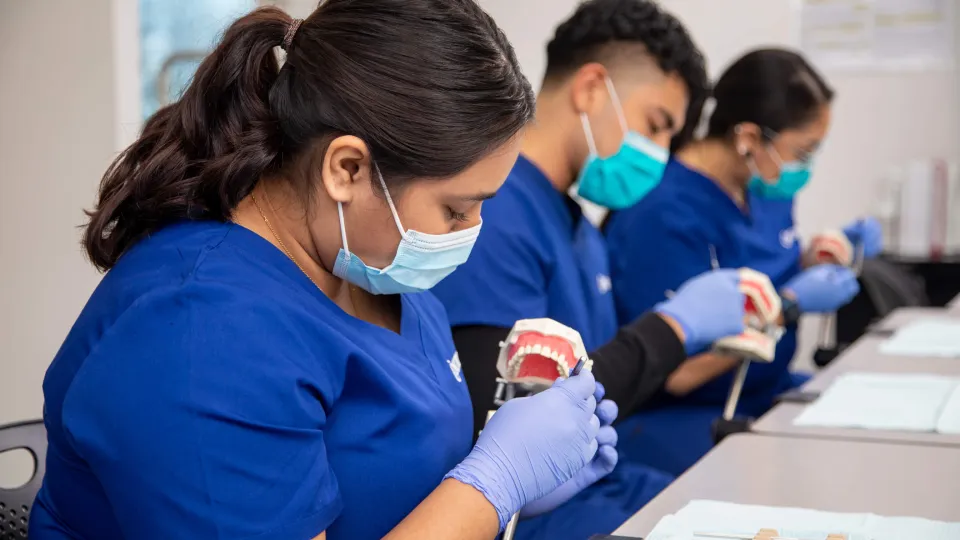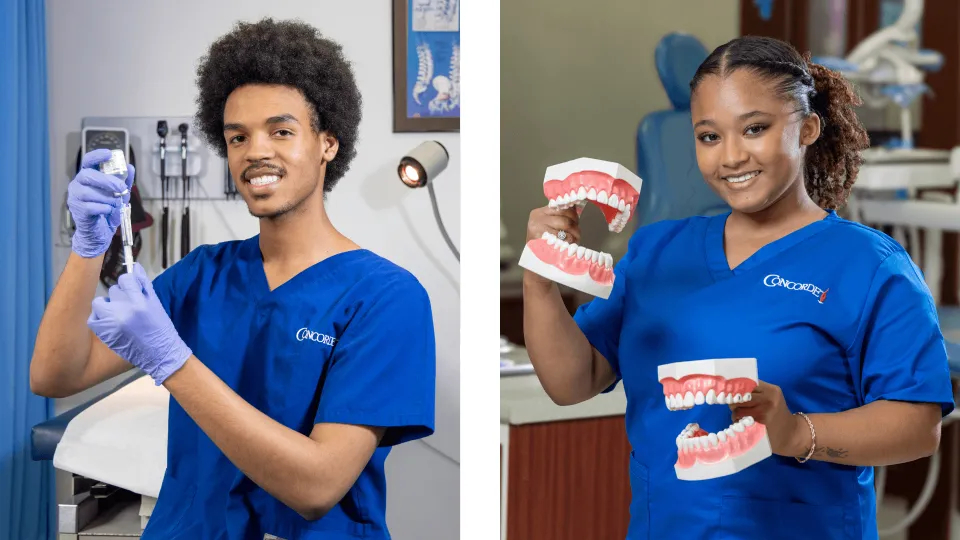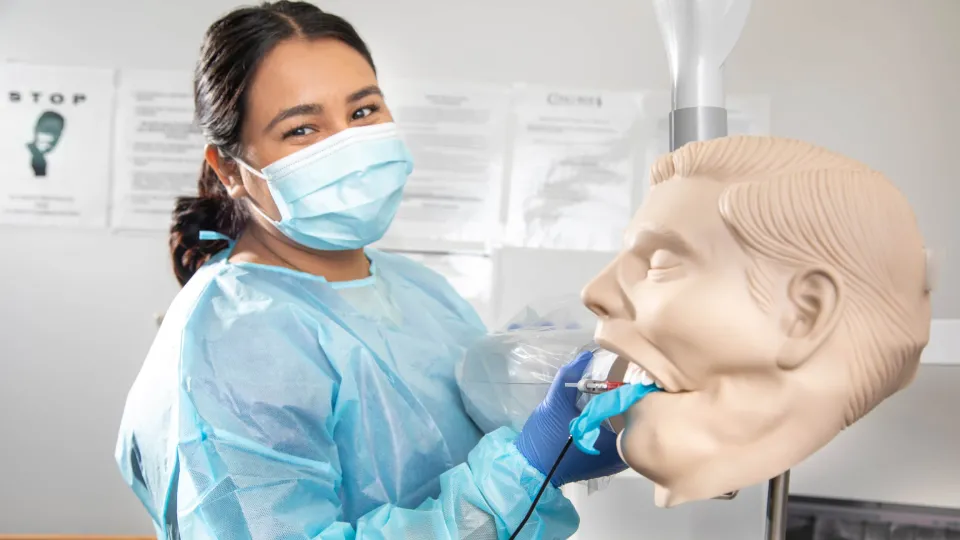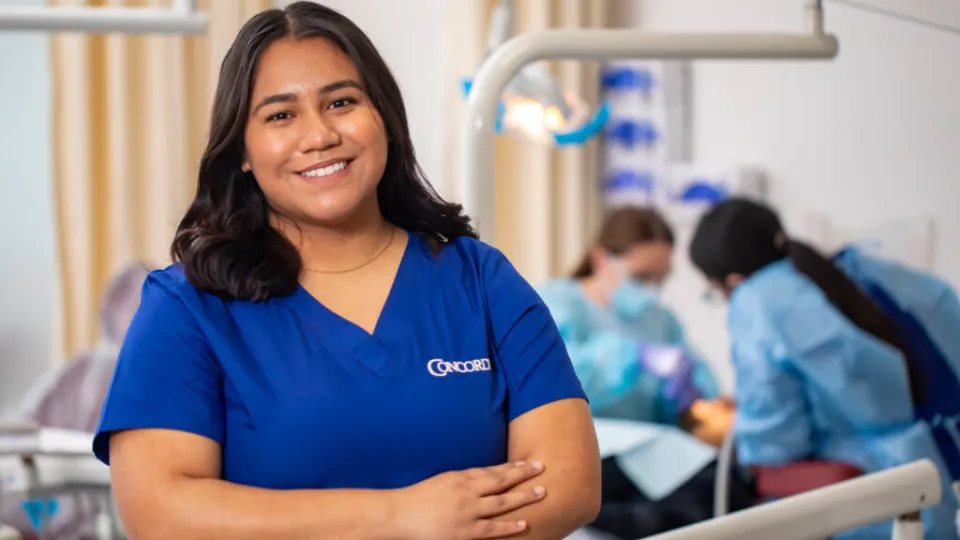
Dental assistants perform a wide variety of tasks within a dentist's office. They're usually the ones who prepare patients for dental procedures and assist dentists during those procedures. They also perform a wide variety of administrative duties, including scheduling appointments and managing patient records. While proficiency in clinical and administrative tasks is essential for any dental assistant, being successful in this role also requires a particular set of soft skills. This article explores the qualities you need to achieve success in this field and outlines ways to improve them.
What Does a Dental Assistant Do?
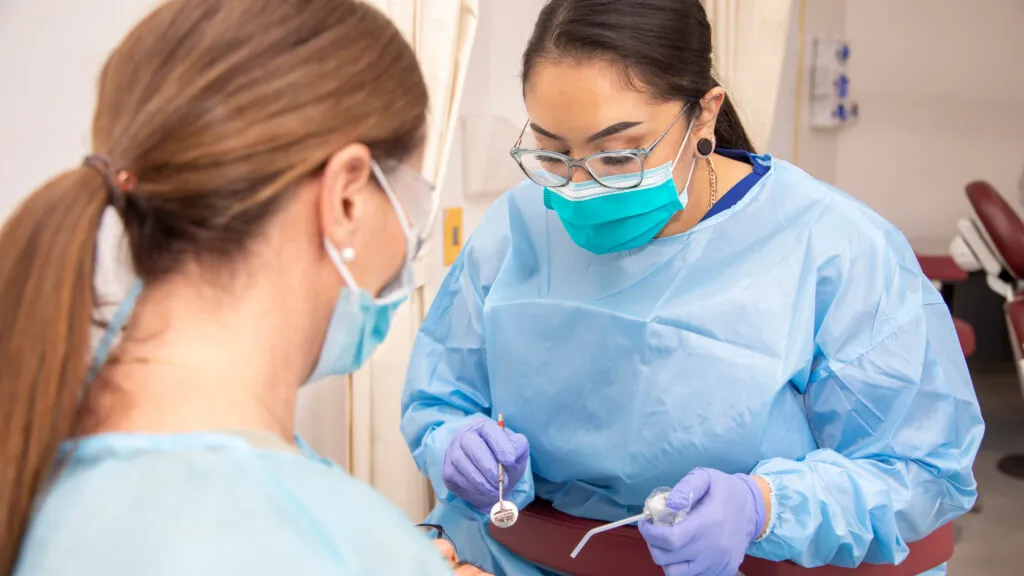
Dental assistants perform multiple duties as part of their daily work routine. These duties can be divided into clinical tasks and administrative tasks. Some clinical tasks that are typically performed daily include:
- Getting patients ready for procedures: One of the most important tasks a dental assistant performs is preparing patients for their upcoming dental procedures. This usually involves guiding them to the dentist's chair, explaining the basics of the procedure to them, and making sure they're comfortable.
- Assisting the dentist during procedures: Dental assistants also play an active role during dental procedures. They often assist dentists with various tasks, including handing them the necessary instruments, suctioning fluids from the patient's mouth, and taking X-rays, among others.
- Preparing equipment: Dental instruments and equipment need to be cleaned and sterilized after each procedure. This is often the responsibility of dental assistants.
- Taking dental impressions: A dental impression is a replica of a patient's dental cavity that helps dentists create personalized treatment plans. These are also often taken by dental assistants.
- Educating patients on proper oral hygiene: Dental assistants may also help patients understand the steps they need to take to maintain optimal oral health.
Some administrative tasks that dental assistants regularly perform include:
- Scheduling patient appointments: Dental assistants typically handle appointments. They manage their dental practice's schedule and book appointments either by phone or online.
- Managing patient bills and insurance claims: They also handle patient billing after each procedure and process insurance claims for patients with dental insurance coverage.
- Handling patient records: Their role can involve managing all types of patient information, including treatment plans and medical records.
- Acting as office managers: Another common task for dental assistants is performing a role similar to that of an office assistant. This typically involves ordering and organizing supplies, managing inventory, greeting patients, and answering phone calls and emails.
It is recommended that aspiring dental assistants complete a dental assisting training program, such as Concorde's Dental Assisting & Dental Assistant Diploma and Associate Programs to learn all these skills and become proficient in the role. The knowledge acquired in these programs is essential to a dental assistant's career path.
Related: Day in the Life of a Dental Assistant
Key Soft Skills for Dental Assistants
The acquisition of certain soft skills is integral to success in this field. Here are some of the most important soft skills dental assistants should master.
Communication Skills
One of the core responsibilities of a dental assistant is to act as a link between the dentist and their patients, so sound communication skills are a vital part of the role. They need to be able to listen actively to the dentist, understand the procedures they're about to perform, and use verbal skills to explain those procedures to patients in simple terms. They also need to be receptive to a patient's needs and concerns, especially those who are afraid of dental procedures. Depending on their workplace, dental assistants may also need to communicate with other medical professionals.
Empathy and Compassion
Although modern dental procedures and anesthesia make everything as painless as possible, some patients experience deep anxiety every time they visit the dentist's office. Being empathetic to a patient's concerns and putting them at ease is another major soft skill for dental assistants. Empathy and compassion help dental assistants understand what patients are going through, reassure them, and make the experience as pleasant and pain-free as possible.
Attention to Detail
As with any medical procedure, dental procedures require a high degree of precision. Even a seemingly insignificant detail can make a huge difference and potentially cause problems if neglected. For example, an improperly sterilized instrument can lead to infections or bacterial growth. This means that attention to detail is a crucial skill, not only for dentists but also for their assistants. Having a detail-oriented mindset can help prevent errors and facilitate successful procedures.
This same soft skill is also important when handling administrative tasks. Accurate record-keeping enables dentists to have easy access to patient histories, and making appointments with detailed care helps prevent delicate situations such as double bookings.
Organizational Skills
Dental assistants must be able to switch between tasks at any given time, from scheduling appointments and managing patient records to performing practical duties and assisting dentists during procedures. It's essential to be highly organized and carry out these duties promptly to maintain an optimal workflow within the dental office. Time is often limited, and strong organizational skills can help dental assistants complete their tasks efficiently while staying on schedule.
Professionalism
Dental assistants must always maintain a professional look and demeanor. They represent their workplace and should uphold the necessary ethical standards required of a medical facility. Besides being respectful to colleagues, patients, and other staff, they must maintain a positive image for their hiring organization and adhere strictly to rules regarding patient confidentiality.
Developing and Improving Dental Assistant Skills
There are many ways to learn and improve upon the skills needed to become a dental assistant. Here are some common options to start you off on your career or help you improve on the skills you already have.
Completing Formal Education and Training Programs
Most dental assistant education and training programs focus mainly on the hard skills and knowledge required to operate successfully in this role. Many will also teach students some soft skills and how to work ethically and professionally. During these programs, aspiring dental assistants will learn to provide quality patient care, communicate more effectively with patients and colleagues, and work well within a team.
Related: Daviana's Story Is For Anyone Who Felt Lost After High School
Continuing Education Opportunities
Practicing dental assistants have opportunities to improve through seminars, workshops, online courses, and other similar events. While any program dedicated to this role will include some soft skills, there are also programs specifically designed to improve them. From learning to communicate effectively to working well in team environments, there's much available that teaches these skills. Examples of popular continuing education opportunities for dental assistants include courses offered by the American Dental Association and the DALE Foundation.
On-the-Job Learning and Mentorship
Dental assistants can also improve their soft skills by observing more experienced colleagues and emulating their behavior. This involves analyzing how they use skills such as communication, empathy, and professionalism to navigate real-world situations, particularly in dealing with conflicts and anxious patients, or operating as part of a larger dental team.
Practicing and Refining Soft Skills in Daily Work
Every interaction with patients, dentists, and other coworkers is an opportunity to learn how to communicate successfully, work within a team, and empathize with other people's issues and concerns. Unforeseen situations, which are daily events in most medical practices, can be seized as opportunities to learn and become better professionals.
Seeking Feedback From Colleagues and Supervisors
A great way to monitor your progress as a dental assistant is to ask colleagues, dentists, and other members of the medical staff for feedback. When you do your job well, you make the tasks and responsibilities of those working around you easier, so they're likely to be honest with you. Ask for feedback on what your strengths are and the things you may need to work on to become a better professional.
The Path To Becoming a Successful Dental Assistant
A dental assistant's role can be highly rewarding, but it does require a strong set of skills, knowledge, and experience. The good news is that there are many programs and paths you can take to acquire these skills and be successful in this role.
Determine where you are in the process, the precise areas that you need to work on, and which steps from the suggestions in this article are the right ones for you to embark on a fruitful career as a dental assistant.
Related: Rapid-Fire Q&A with Lindsay Hernandez Castaneda: Dental Assistant
Continuing Education. (n.d.). Www.ada.org. https://www.ada.org/education/continuing-education
Dental CE. (2026). DALE. https://www.dalefoundation.org/courses/dental-CE
Take The Next Step Towards a Brighter Future
Interested in learning more about our Dental Assistant program?
We have a Concorde representative ready to talk about what matters most to you. Get answers about start dates, curriculum, financial aid, scholarships and more!


